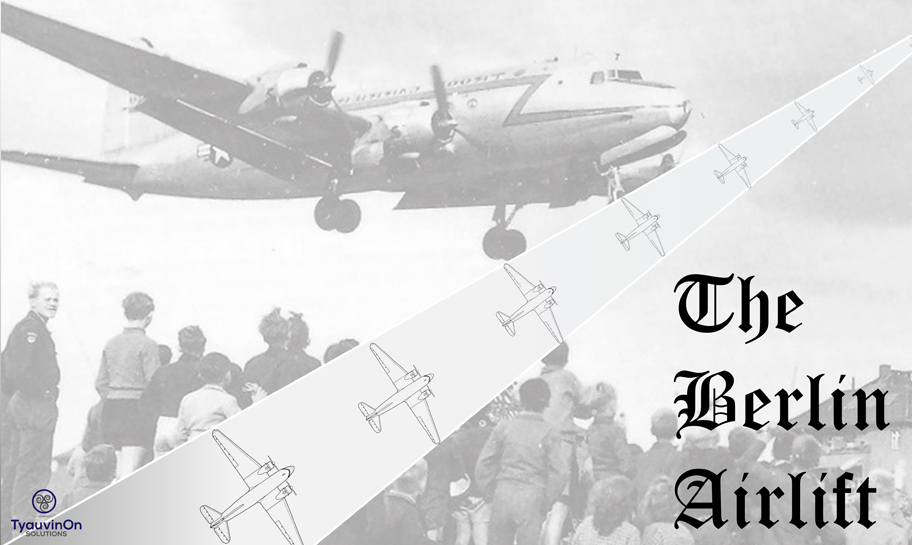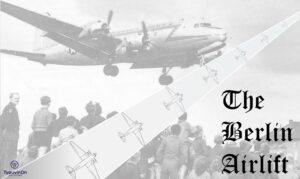In today’s world of supply chain disruptions, geopolitical tensions, and logistical nightmares, what can leaders learn from history’s most audacious supply chain triumph? Join Jim Benvie, “The History PM,” as he reveals actionable leadership lessons from a crisis that occurred over 75 years ago yet remains startlingly relevant to today’s challenges.
The year was 1948. The Soviets had blockaded Berlin, cutting off all land and water routes to the city. The mission seemed impossible: supply food, fuel, and necessities to 2.4 million West Berliners through a narrow air corridor—or surrender the city.
The logistics were deemed unfeasible. Military experts were skeptical. Political leaders feared escalation into armed conflict.
Enter General William Tunner—a visionary leader who transformed a faltering operation into a masterclass of logistical precision. Through revolutionary systems thinking and operational innovation, he created a supply chain so efficient that planes landed in Berlin every 30 seconds. This “impossible” mission became unstoppable.
As organizations face today’s permacrisis environment—from pandemic aftershocks to climate disasters and geopolitical uncertainties, the Berlin Airlift offers timeless lessons in:
- Crisis leadership when failure is not an option
- Supply chain resilience during extreme constraints
- Operational excellence under unprecedented pressure
- Innovation when conventional solutions fail
Learning Objectives
- Apply the Berlin Airlift’s collaborative leadership model to break down silos during modern organizational crises
- Implement the balance between structured processes and innovative thinking that enabled the Airlift’s success
- Leverage the human factors that transformed an impossible mission into an operational triumph






